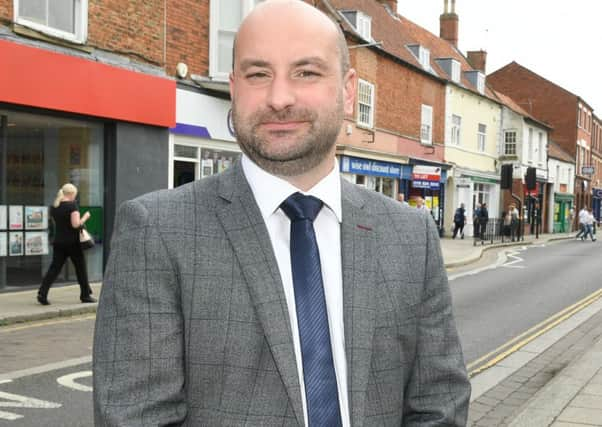PCC delivers vision of policing


Far-reaching, wide-ranging and even ground-breaking, The Community Safety, Policing and Criminal Justice Plan for Lincolnshire seeks to give everyone in the county a direct stake in keeping it as ‘a low crime area’.
With nine years experience in local government, most recently as executive member for finance and property at Lincolnshire County Council, Mr Jones can call on that experience to help him draw together the vast strands of criminal justice in the county.
Advertisement
Hide AdAdvertisement
Hide AdMr Jones said: “If you think in terms of local democracy, the PCC is the only person in the county who has a remit from all seven parliamentary constituencies.
“But it’s not just about policing, it’s about bringing together all the services in the county to see how we can deliver community safety and policing all together.
“The PCC is a key player in making that happen and the document itself has primacy in the county so that other organisations in Lincolnshire have to take it into account.”
Mr Jones has christened his blueprint as the ‘Safer Together Plan’, with its overall concentration on tackling ‘conventional crime’ such as theft, burglary and assault, while also putting measures in place to deal with child sexual abuse, human trafficking, organised and cyber crime.
Advertisement
Hide AdAdvertisement
Hide Ad“No force is fully equipped to deal with cyber crime because we don’t know how big it’s going to get,” Mr Jones said.
“What we do know is that you can’t enforce yourself out of these crimes but it’s about educating other people about such crimes.
“We are part of a collaborative group, the East Midlands Special Operations Unit, and directly linked to the National Cyber Crime Unit so we’re very well placed to deal with it.
“But I’m very keen on prevention as well, finding new ways of reaching into people’s homes to protect children and vulnerable adults online.”
Advertisement
Hide AdAdvertisement
Hide AdOne advantage Mr Jones has over his predecessor, former TV presenter Alan Hardwick, is the benefit of hindsight having come into office almost five years after PCCs became statutory under The Police Reform and Social Responsibility Act 2011.
A test of such hindsight will come when the Commissioner and Chief Constable have to argue for an extra slice of the policing budget cake to plug an estimated £6 million hole facing Lincolnshire Police in three years’ time.
Mr Jones said: “It’s a very brave thing to be the first one in anything and back in 2012, did anyone have a clear idea of what the role would be?
“The second cohort of PCCs have the benefit of doing some real learning, based on the experiences of the first group.
Advertisement
Hide AdAdvertisement
Hide Ad“The previous Commissioner (Alan Hardwick) made a decision to put into the budget a presumption that the Government would give us £4.4 million in 2017/18, £5.7 million the following year and £6 million the year after that.
“I don’t know if that’s going to happen yet and we’re filling a hole of £2.5 million in our policing budget from our reserves this year.
“It was an assumption that was made and we have to deal with the reality of that.”
“Can we bring in new technology which means we can do things in a different way and by jointly working with other partners, can we get the money to deliver these services?”
Another job of replacement faces the Commissioner after confirmation earlier this month that Neil Rhodes is to retire as Chief Constable in February 2017 after 31 years in the police service.